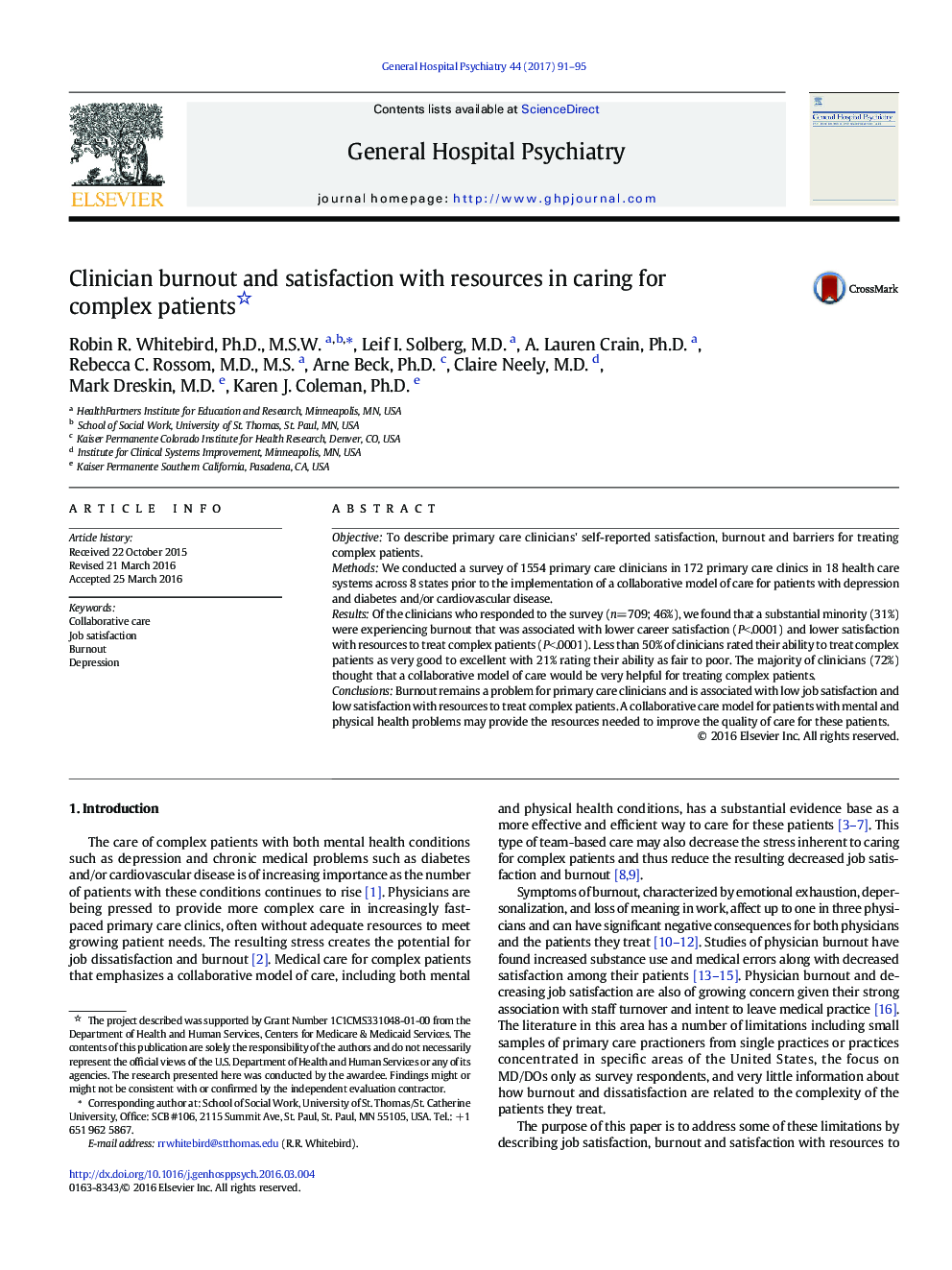| Article ID | Journal | Published Year | Pages | File Type |
|---|---|---|---|---|
| 5652364 | General Hospital Psychiatry | 2017 | 5 Pages |
ObjectiveTo describe primary care clinicians' self-reported satisfaction, burnout and barriers for treating complex patients.MethodsWe conducted a survey of 1554 primary care clinicians in 172 primary care clinics in 18 health care systems across 8 states prior to the implementation of a collaborative model of care for patients with depression and diabetes and/or cardiovascular disease.ResultsOf the clinicians who responded to the survey (n=709; 46%), we found that a substantial minority (31%) were experiencing burnout that was associated with lower career satisfaction (P<.0001) and lower satisfaction with resources to treat complex patients (P<.0001). Less than 50% of clinicians rated their ability to treat complex patients as very good to excellent with 21% rating their ability as fair to poor. The majority of clinicians (72%) thought that a collaborative model of care would be very helpful for treating complex patients.ConclusionsBurnout remains a problem for primary care clinicians and is associated with low job satisfaction and low satisfaction with resources to treat complex patients. A collaborative care model for patients with mental and physical health problems may provide the resources needed to improve the quality of care for these patients.
